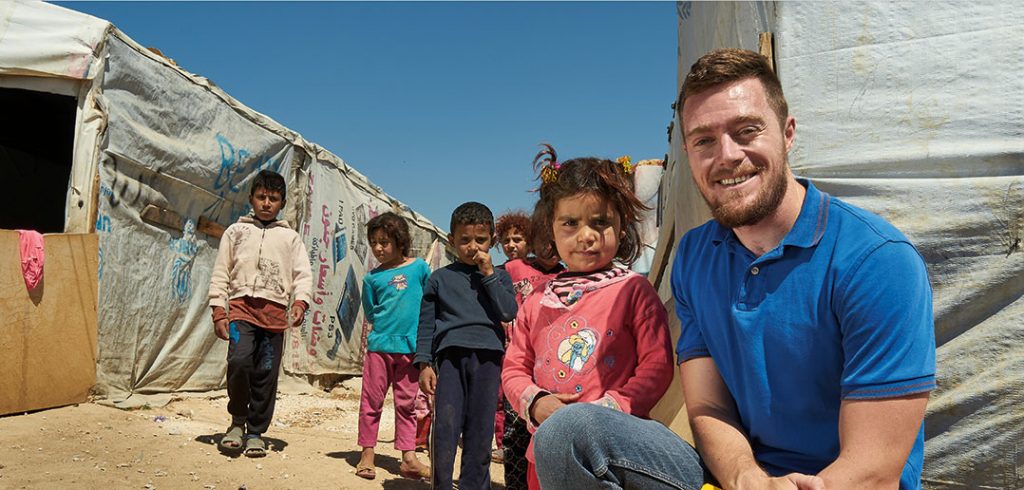A Catholic Relief Services worker aids Syrian refugees in Lebanon
Not long after arriving in Lebanon last year, Sean Kenney traveled to the country’s Bekaa Valley, where an estimated 1.5 million refugees from war-torn Syria have crossed the border to live in tent settlements dotting the dirt fields.
Kenney, a program manager with Catholic Relief Services, went to distribute food and hygiene vouchers to the refugees, who endure harsh conditions. One family had lived in a tent for more than three years, and pleaded for more support—especially during the bitterly cold winter months.
“They were very grateful for the vouchers, but the aid was simply not enough,” says Kenney, who works with local partner Caritas Lebanon to provide humanitarian relief. “They had no other source of income.”
Daily life in the Bekaa Valley settlements is arduous. Unlike neighboring countries, Lebanon has established no formal refugee camps and provides no government support. Landowners charge refugees to live in their fields, and employment restrictions make it difficult for refugees to find work.
And while Caritas Lebanon supports an effort to get more Syrian kids enrolled in Lebanese schools, the majority of refugee children receive no formal education, creating what Kenney calls a “lost generation” of Syrian youth.
A Kansas native, Kenney joined the Jesuit Volunteer Corps in 2010. Assigned to a new high school in rural Tanzania, he taught geography and organized a program that allowed students to serve as English tutors for children in a nearby village.
But he soon realized that he needed a graduate degree to further his career. In Fordham’s International Political Economy and Development program, he gained expertise in data analysis and data management along with a strong understanding of development economics. After earning a master’s degree in 2015, he interned for Catholic Relief Services, assessing the impact of a water and sanitation program at a camp for South Sudanese refugees in Uganda. Later that year, he was sent to the Middle East, where he worked on a program that promoted cooperation among pediatric palliative care providers.
In 2016, he became a program manager and joined the team in Beirut, where his responsibilities include a new project that provides food, shelter, medical support, and trauma counseling to refugees who are survivors of sexual and gender-based violence.
“This type of work can put you close to really terrible suffering,” Kenney says. “But the genuineness of the people I work with and the people I work on behalf of keeps me engaged and optimistic about my work.”
—Mariko Thompson Beck

